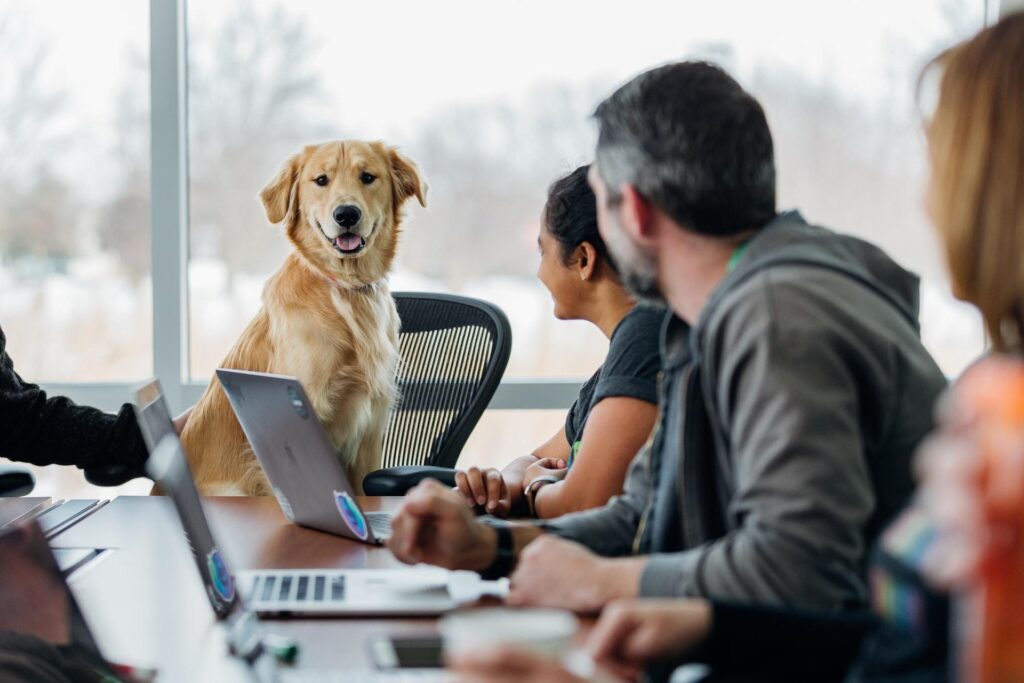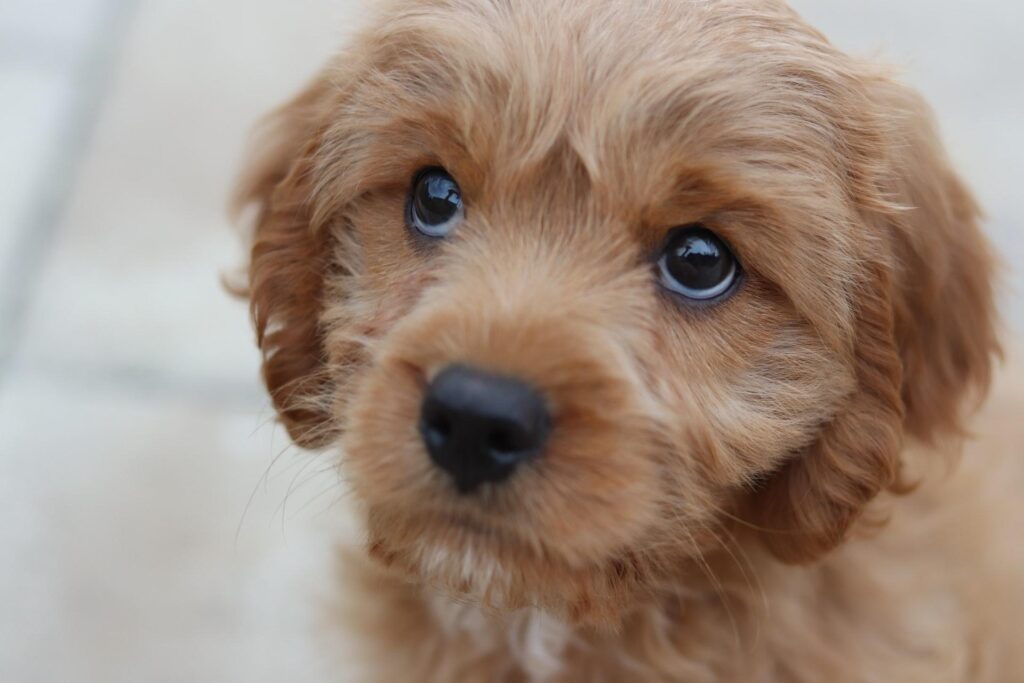You’ve just met the sweetest, gentlest fur-baby ever. You play with them, pet them, love them, and then all of the sudden, you try to take something away or remove them from a harmful situation and that sweet little puppy begins to growl and snaps at you. What happened? And you wonder….
Was it treated badly at the breeder’s? Did it not get enough love and affection from the people who were in charge? Did you get a puppy that’s ‘hooked up a little different’ or ‘wired wrong’? While the last one is possible, it’s much rarer than people think. More than likely, your puppy is just trying to find its ‘place’ in your pack, er family. Such is their innate nature to find its place in the world with its dog brothers and sisters in their pack.

You’re the adult, the leader of the pack, and the trainer in the household. If you have children, the puppy sees them as, well, other puppies. So, how can you get started on the right foot, er paw, to avoid any aggressive behaviors?
Below are 5 tips to help lay a foundation.
5 Tips to Ensure You and Your Pup Get Started on the Right Path
Special thanks to Steve Haynes, Dog Behaviorist, for his insight into these basic tips to get you and your new pup on track from the get go.
- Lay the ground rules. Your pup will have to ‘work’ for its treats and some of its food, laps, and special benefits. Define where your pup is not allowed – sofa, chair, table, etc. Make sure everyone in the family is on the same page, so the puppy doesn’t get confused. And with the holidays fast approaching, be vigilant in keeping it away from toxic holiday dangers.
- It’s OK to ‘Nag’ Your Puppy. This tip includes nudging it off places it’s not allowed. It also encourages keeping bad behaviors in check during walks by snapping the leash a little bit. This ‘snap’ reminds the pup what isn’t allowed.
- Remember Having and Training a Puppy is Work. Whether it’s making sure it’s fed, walked, watered, played with, trained, puppies don’t come already knowing things. They have to learn just like children do. Your puppy needs to learn where it’s allowed to go, what it’s allowed to do, and through training how to do things the way its humans want.
- Set a Schedule. Puppies need structure. A schedule. Setting the puppy up on your schedule – waking up, eating meals, walking, potty training, etc. – can help prepare your puppy and you for a wonderful time together. Set a schedule and celebrate when puppy does well with a special treat.
- Small ‘Celebrations’ Equal a Well-Trained Puppy. When training your puppy, it’s important to celebrate its small accomplishments. Don’t wait for the “BIG” accomplishments. Reward your puppy for the simple things it does right for you. Comment with ‘Good job!’ or ‘Good dog!’ and try not to just focus on the things he or she isn’t doing correctly. A special treat for a job well done, extra pets and lap time, can lead up to a resoundingly successful life with your fur-ever friend.

What We’re Doing at Golden Cavaliers
About a year ago, we started conducting Early Neurological Stimulation (ENS) to prepare our puppies for socialization. At least two puppies from every litter it seems are destined for careers as therapy dogs in doctors’ offices, schools, and hospitals. The benefits of ENS include, but are not limited to:
- A healthier heart
- Less prone to disease
- Higher tolerance for stress
- Easier adaptability to changing environments – consider the number of changes a puppy can go through in a short amount of time. After 8 weeks on the farm, it’s suddenly in a car or an airplane (new sensations) traveling to a new location with a new person (new smells and senses).
Each puppy is handled with care from the moment they’re born. They are gently handled, loved, and stimulated as they get used to a human touching their paws or rubbing their belly for a couple of examples and human interaction, in general. It’s also during this time, we learn every inch of them and begin to see their personalities develop. We know who is the smallest, the most active, the gentlest, the sweetest, and the list goes on.
Every puppy is unique and we want to track their personalities so we can recommend the right puppy to the right family.
This is when we have the joy of giving them their ‘farm names’, so we can keep them straight and watch them as they grow and play with each other and with us.
At Eight Weeks and Beyond
We don’t let our pups go to their forever homes until they are at least 8 weeks old. This means a few things and is important because it ensures your puppy has had
- First puppy immunizations (at 7 weeks old). The next booster shots should be at 12 and 16 weeks old.
- Gives it the most time with its mother and littermates and prepares your puppy to be separated from what it’s known the first 8 weeks of its life. However, puppies are quite resilient. You show your puppy love and it will reciprocate.
- Gives you time to prepare for your puppy. Whether you need to puppy proof your home or ensure you have no plans away from the house as you get to know each other, it allows for puppy and person bonding time.
One Final Thought…
After visiting with my family the other day, my mother said something which kind of stuck. She explained that when she’d taken her pup to the trainer for the first time, her trainer explained, ‘It’s not the puppy, it’s you. You’re in charge and you need to let the puppy know that from the beginning.’

Getting started with at least basic obedience early is important. The exercises teach the puppy not only the ‘commands’ but helps them learn ‘how to think and learn’ which is far more valuable in the long term with a dog. When you teach your puppy early how to learn, there are a myriad of benefits such as a calmer, more confident, and obedient dog at your feet and by your side.
Early training also helps the puppy to recognize where it fits in the “pack order” of the household. When a puppy is training and working for its people it recognizes that it’s not in charge of situations and that it’s people can direct it to do certain things.
We all do our best – human and puppy – and we’re all always learning. But whatever you can find or learn from to get everyone started on the right foot or paw, that will set you up for a long, happy life with your pup.

this article is really great thanks for the information that you provide related to puppy health